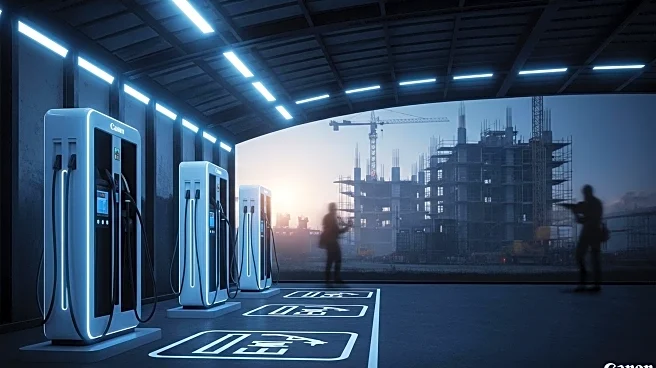What's Happening?
U.S. immigration authorities conducted a raid at Hyundai's electric vehicle manufacturing site in southeast Georgia, focusing on the construction area for a new EV battery plant. The site, which is one of Georgia's largest manufacturing projects, employs approximately 1,200 people. The raid led to the suspension of construction activities, although operations at the existing EV manufacturing plant continued unaffected. The raid is part of broader enforcement actions by U.S. Immigration and Customs Enforcement, targeting various industries across the country.
Why It's Important?
The raid at Hyundai's site highlights ongoing immigration enforcement efforts that can impact major economic projects. The suspension of construction activities at the battery plant could delay its opening, affecting Hyundai's production capabilities and economic contributions to the region. This development underscores the intersection of immigration policy and economic growth, as manufacturing sites rely on a diverse workforce. The raid may prompt discussions on immigration reform and its implications for the U.S. labor market, particularly in industries dependent on immigrant labor.
What's Next?
Hyundai and its partners are cooperating with authorities, and construction is expected to resume once the investigation concludes. The incident may lead to increased scrutiny of workforce practices at manufacturing sites, potentially influencing policy changes. Stakeholders, including state officials and industry leaders, may advocate for clearer guidelines to balance immigration enforcement with economic development. The outcome of this raid could set precedents for future interactions between immigration authorities and large-scale industrial projects.









